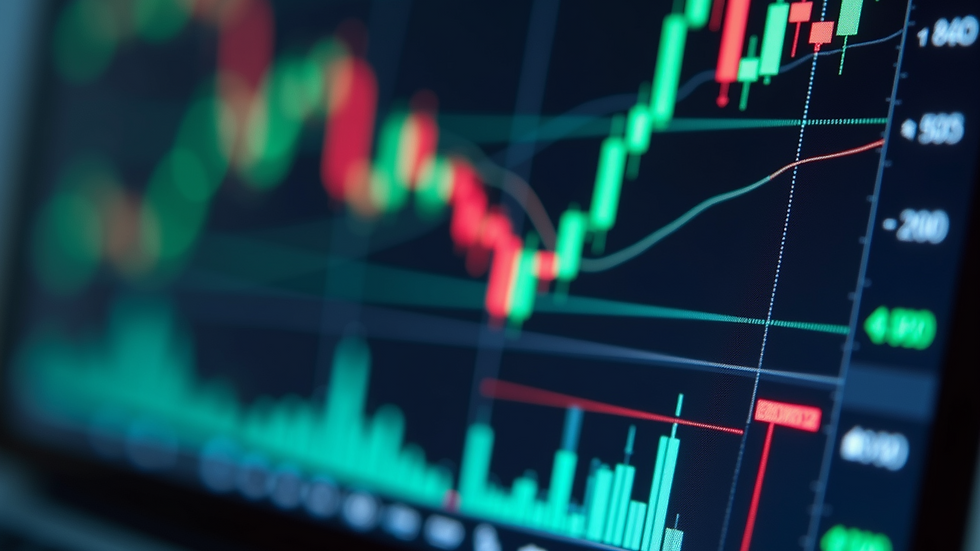Gold vs. Bitcoin: Unravelling the Battle for Alternative Asset Supremacy
- forex368

- Jan 22, 2023
- 3 min read
Gold has long held the position as the go-to alternative asset class for investors seeking a safe haven during times of uncertainty. Its tangible nature, historical resilience, and stable value have made it a trusted store of wealth for centuries. However, the emergence of Bitcoin as a viable alternative has disrupted the traditional landscape. With its skyrocketing price and growing popularity, Bitcoin appears to be challenging gold's reign. But is it truly ready to dethrone the yellow metal?
While Bitcoin has garnered significant attention and attracted a dedicated following, many critics argue that it may be the largest bubble the world has ever seen. Comparisons to historical speculative bubbles like Tulip Mania are frequently drawn, questioning the sustainability and true value of Bitcoin. Renowned investor Warren Buffett has even remarked that Bitcoin is no more than an efficient way of transmitting money, much like checks and money orders. If traditional methods of money transfer do not hold such astronomical value, why should Bitcoin?
One crucial distinction between gold and Bitcoin lies in their tangibility. Gold is a physical commodity that investors can touch and feel, imbuing it with a sense of security and trust. Its purity can be verified, and its physical nature makes it resistant to corruption. In contrast, Bitcoin exists solely in the digital world, lacking any physical presence. This opens up Bitcoin to manipulation and scams, as it remains largely unregulated without governing bodies overseeing its operations.
The meteoric rise of Bitcoin's price in recent times has raised concerns about insider trading and market manipulation. It is believed that price surges are often the result of insider activity, creating an illusion of rising prices that attracts unsuspecting investors. Once the original scammers dump their holdings, the market crashes, leaving many investors at a loss. Furthermore, Bitcoin's elusive nature makes it difficult to track and recover stolen funds, leaving investors vulnerable in the face of online theft. These factors contribute to Bitcoin being viewed as an intermediate asset class rather than a final destination for storing value.
Another crucial aspect in the battle between gold and Bitcoin is liquidity preference. In times of crisis, the preference for a reliable asset becomes paramount. Gold's long-standing history of surviving crises and being universally accepted as a form of payment gives it an inherent advantage. In dire situations, such as the Venezuelan hyperinflation, gold retains its value and can still be exchanged for goods and services. On the other hand, Bitcoin, as a relatively new asset, has yet to prove its effectiveness in navigating such scenarios. Its dependence on online transactions and potential disruption of electricity supply during a crisis raises questions about its functionality and practicality.
Stability is another factor that sets gold apart from Bitcoin. While gold has experienced price fluctuations over the years, none have been as dramatic or volatile as those witnessed in Bitcoin. Bitcoin's price can rise and fall rapidly, leading to uncertainty and potential losses for investors. The instability of Bitcoin as a store of value diminishes its reliability as a long-term investment option.
Furthermore, the environmental impact of Bitcoin mining cannot be overlooked. Bitcoin's energy consumption is notoriously high, with the mining process requiring substantial energy inputs. It has been estimated that the energy generated by burning 12 barrels of oil is used to mine a single Bitcoin. Currently, Bitcoin mining activities consume more energy than entire countries like Nigeria, and it is projected to surpass even Japan, the world's second-largest economy. This raises concerns about diverting valuable energy resources towards financial transactions rather than addressing pressing global energy needs. In contrast, gold mining does not pose the same level of energy consumption concerns, as it has been a longstanding practice carried out for centuries.
In conclusion, while Bitcoin may appear to be a promising alternative to gold, it still faces significant challenges that hinder its widespread adoption and reliability as an alternative asset class. The tangible nature, historical resilience, and stability of gold provide a sense of security that Bitcoin currently lacks. The absence of regulatory oversight, susceptibility to scams, and high volatility all contribute to the scepticism surrounding Bitcoin's long-term viability.
The introduction of Bitcoin futures further adds complexity to the cryptocurrency market, raising concerns about speculative trading and potential market manipulation. The dependence on Bitcoin exchanges for price determination and the high margin requirements pose additional risks and uncertainties.
In the short term, Bitcoin may continue to captivate investors seeking quick profits. However, the fundamental characteristics and enduring history of gold position it as the preferred choice for investors seeking a stable and trustworthy alternative asset class. While Bitcoin's popularity may continue to rise, it remains to be seen if it can withstand the test of time and secure its place as a reliable store of value.




